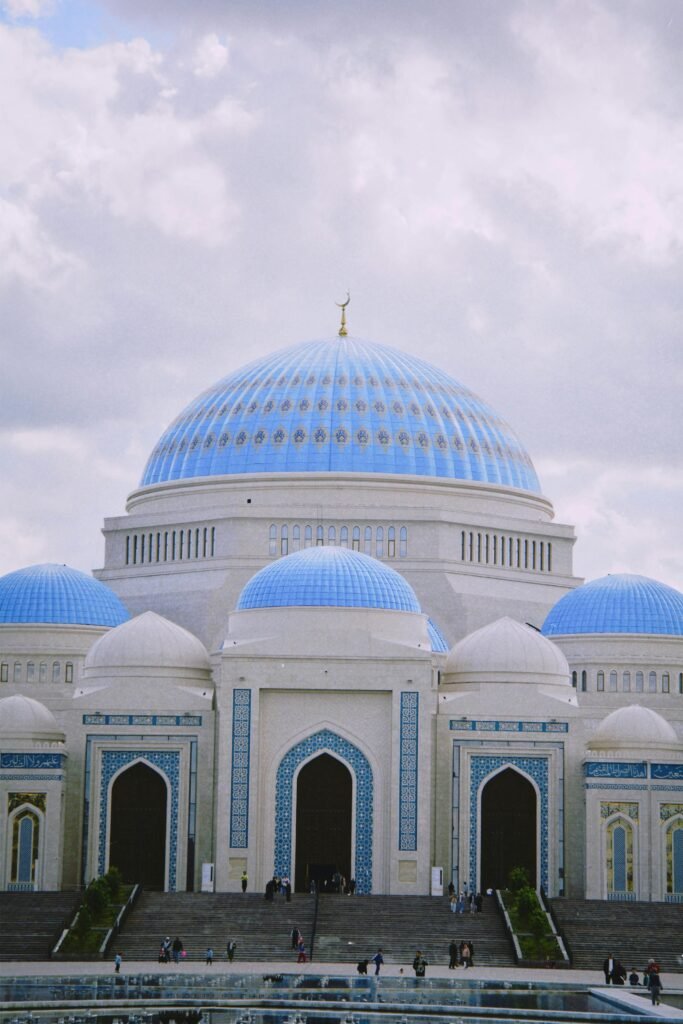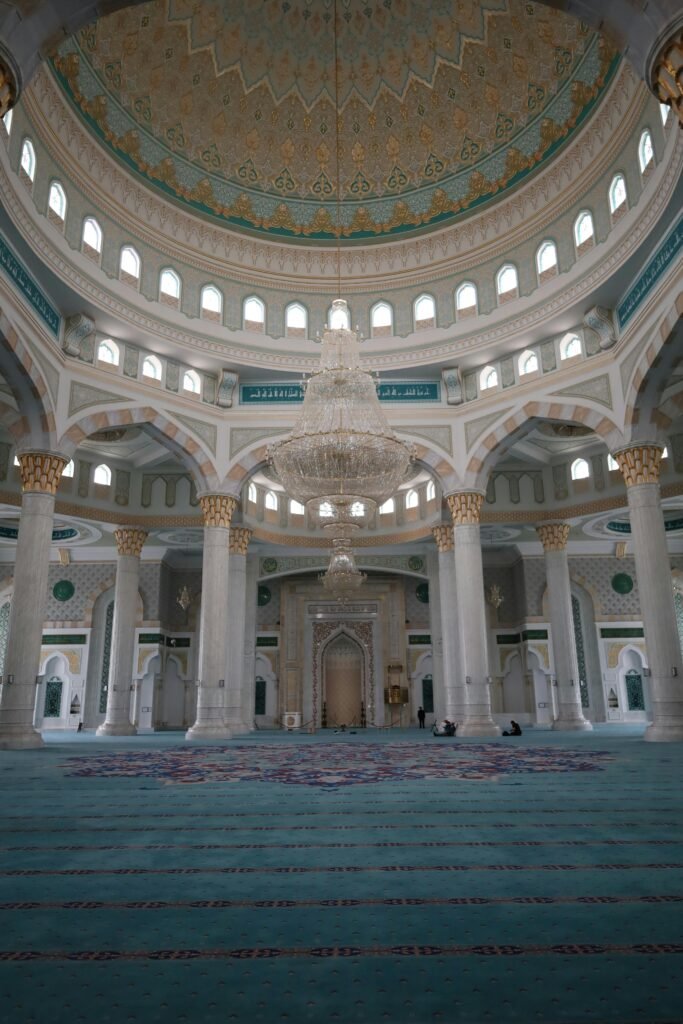Islamic News: Justice and Leadership In The Modern World, Islamic Rules
In an era marked by transformation and global interconnection, Islamic News amplifies how Islam—a timeless faith—molds justice and leadership in the contemporary milieu. This exploration delves into Islamic Information, including Islamic History, what the Islamic religion truly represents, insights on the Islamic Hijri calendar, celebrations like the Islamic New Year, What Is Eid, and rituals like what is Roza and salah. We will unravel how this divine tradition inspires equitable governance, compassionate leadership, and societal equilibrium.

1. Understanding the Core: What the Islamic Religion Represents
1.1 Essence of Islam
Islam arises from the Arabic root s-l-m, connoting peace, submission, and sanctity. It is grounded in surrendering to Allah, fostering serenity and spiritual equilibrium. What the Islamic religion truly embodies is more than ritual—it is a luminous philosophy that molds hearts and societies.
1.2 Pillars of Faith
The quintessence of Islam is its foundational Five Pillars:
- Shahādah (faith declaration): “There is no god but Allah…”
- Ṣalāh (prayer): structure and mindfulness.
- Zakāh (charity): purifies wealth and fosters justice.
- Ṣawm (fasting): especially during Ramadan.
- Ḥajj (pilgrimage): spiritual unity.
Each pillar fortifies moral character and communal solidarity—cornerstones of righteous leadership.
2. Islamic History and Its Leadership Legacy
2.1 Epochs and Leadership Archetypes
Islamic History unfolds as a chronicle of emblematic leaders—Prophet Muhammad and the Rashidun Caliphs—who exemplified justice, valor, and equity. They pioneered a model of stewardship rooted in empathy, integrity, and collective welfare.
2.2 The Rashidun Paradigm
The era of Abu Bakr, Umar, Uthman, and Ali is etched as a golden epoch of jurisprudence and governance. Their decisions, marked by sagacity and prudence, remain referenced in modern ethical and administrative discourse.
2.3 Evolution through the Umayyad and Abbasid Eras
Although diverse in style, these dynasties further codified legal systems, instituted judicial frameworks, and supported scholars, thereby shaping future leadership paradigms.
3. Islamic Hijri Calendar & Islamic New Year – Spiritual Reset
3.1 What Is the Islamic Hijri Calendar?
The Islamic Hijri calendar, lunar-based, commences in 622 CE—the Hijrah. It connects the faithful to a divine chronology steeped in spiritual symbolism and historical profundity.
3.2 Islamic New Year: Significance and Reflection
Each Islamic New Year (1 Muharram) is a spiritual fulcrum. It invites collective introspection, ethical recalibration, and renewal of intention. As Islamic News circulates annually, it emphasizes accountability and hope.
4. What Is Eid: Communal Harmony and Joy
4.1 What Is Eid al-Fitr?
What Is Eid not just a feast—it’s a jubilant conclusion to Ramadan’s fast (what is Roza) and a luminous affirmation of community, generosity, and solidarity. The streets fill with laughter and warmth, reflecting the joy of spiritual rebirth.
4.2 What Is Eid al-Adha?
Reminiscent of Ibrahim’s sacrifice, Eid al-Adha echoes profound submission and trust. It calls believers to share sacrificial meat, forging empathy and care. Leaders channel this message into social welfare policies and charity drives.
5. What Is Roza and Salah: Disciplines of Leadership
5.1 What Is Roza (Fasting)?
Roza, as seen during Ramadan, cultivates resilience, mindfulness, and solidarity with the underprivileged. For leaders, it fosters empathy and enhances moral clarity.
5.2 What Is Salah (Prayer)?
The ritual salah—performed five times daily—encapsulates humility, discipline, and divine remembrance. It infuses leaders with spiritual fortitude and ethical orientation.
6. Islamic Justice: Principles & Modern Applications
6.1 The Philosophical Underpinnings
Islamic News frequently highlights Sharia’s immutable principles—justice (adl), equity (ihsan), and trust (amanah). These undergird ethical systems and legal frameworks, providing an enduring blueprint for just societies.
6.2 Human Rights and Policy
In contemporary quarters, nations infuse Islamic ethical precepts into civil legislation. Rights to education, healthcare, inheritance, and due process echo Islamic jurisprudence while ensuring modern inclusivity.
6.3 Judicial Systems & Institutional Integrity
Modern courts in Muslim-majority countries often incorporate Sharia courts for personal law. Landmark cases reveal how jurists strive to harmonize tradition with constitutional norms, ensuring fairness.
7. Leadership Inspired by Islamic Ethics
7.1 Prophetic Leadership Archetype
Prophet Muhammad’s leadership was compassionate, decisive, and humble. His consultative approach (shura) and servant-leadership remain a guiding heuristic for modern governance.
7.2 The Consultation Principle (Shura)
Embedded in the Quran and Sunnah, shura enjoins deliberation and consensus. Today, it informs democratic institutions in many Muslim-majority states.
7.3 Modern Applications: Governance and Ethics
From constitutional monarchies to republics, countries like Jordan, Malaysia, and Pakistan integrate Islamic values into policy-making, human rights discourse, and ethical administration.
8. Islamic Education and Moral Leadership
8.1 Madrasa Tradition
Madrasa education—anchored in Quranic, Hadith, and jurisprudential studies—remains a repository of spiritual and moral cultivation. Graduates often assume leadership roles in society.
8.2 Contemporary Universities
Institutions like Al-Azhar and the International Islamic University fuse traditional Islamic curricula with modern sciences. These leaders cultivate critical thinking and social responsibility.
8.3 EdTech and Global Outreach
Through digital platforms, Islamic Information spreads globally. Online courses, webinars, and news portals ensure that Islamic News enriches minds and communities across continents.
9. Culture, Art, and Leadership Expression
9.1 Calligraphy and Artistic Leadership
Islamic calligraphy—an exquisite, meditative craft—symbolizes reverence and creativity. It reflects how leaders patronize beauty to foster spiritual and cultural vitality.
9.2 Architecture and Public Space
Mosques and civic structures embody harmony, geometric symmetry, and spiritual symbolism. Modern urban planners draw inspiration from these designs to create inclusive communal spaces.
9.3 Literature and Moral Narratives
From Rumi’s poetry to modern Islamic scholars, literature remains a vehicle for ethical leadership. It conveys moral lessons, empathy, and visionary ideals.
10. Contemporary Islamic News: Justice & Governance

10.1 Spotlight on Legal Reform
Islamic Website often illuminates countries reviewing personal-status laws to promote gender parity. Reformist leaders and female jurists spearhead these landmark initiatives.
10.2 Interfaith Justice Initiatives
Cross-religious courts and councils—seen in nations like the UAE and Malaysia—facilitate dispute resolution. These collaborative frameworks reflect Islam’s universal ethos of justice.
10.3 Humanitarian Leadership in Action
Islamic NGOs, under ethical governance, are at the forefront of global aid, responding to disasters with dignity, compassion, and unwavering equity.
11. Challenges and Resilience in Leadership
11.1 Extremism vs. True Leadership
Islamic News addresses the tension between extremist distortions and authentic leadership rooted in Sharia. True leadership repudiates violence and champions compassion.
11.2 Political Challenges and Institutional Strength
Many Muslim-majority nations contend with political volatility. Yet, Islamic teachings provide frameworks for constitutional order, consensus-building, and ethical governance.
11.3 Youth Empowerment
Young Muslims, equipped with modern education and traditional ethics, emerge as catalysts for progressive change. They bridge heritage with innovation, forging a compelling future narrative.
12. Global Influence: Islamic Justice & Leadership
12.1 International Collaboration
Countries and institutions engage in global dialogues on justice, environment, and interfaith harmony, guided by Islamic ethical imperatives.
12.2 Islamic Finance and Ethical Leadership
Islamic banking—anchored in interest prohibition and risk-sharing—promotes equitable growth. Its global expansion highlights Islamic leadership in modern ethics.
12.3 Diplomacy and Mediation
Mediators from Muslim-majority nations have successfully brokered peace in contested areas. They invoke Islamic principles of justice, reconciliation, and mercy.
13. Future Trajectories: Justice and Leadership
13.1 Integrative Governance Models
Emerging systems combine constitutional law with Sharia-informed ethics. This hybrid model respects tradition while safeguarding pluralism.
13.2 Tech-Driven Justice
Islamic jurisprudence is adapting to artificial intelligence, digital banking, and bioethics. Scholars are pioneering frameworks in Islamic News discourse.
13.3 Global Youth Leadership
The next generation of Muslims is poised to assume leadership in politics, philanthropy, science, and art, fueled by ethical grounding and technological acumen.
Conclusion
Islam’s foundational tenets—justice, consultation, empathy, and stewardship—resonate powerfully in shaping modern leadership. Islamic News underscores these enduring legacies. The paradigm of what the Islamic religion offers transcends ritual—it provides a robust framework for governance, social equity, and ethical transformation.
